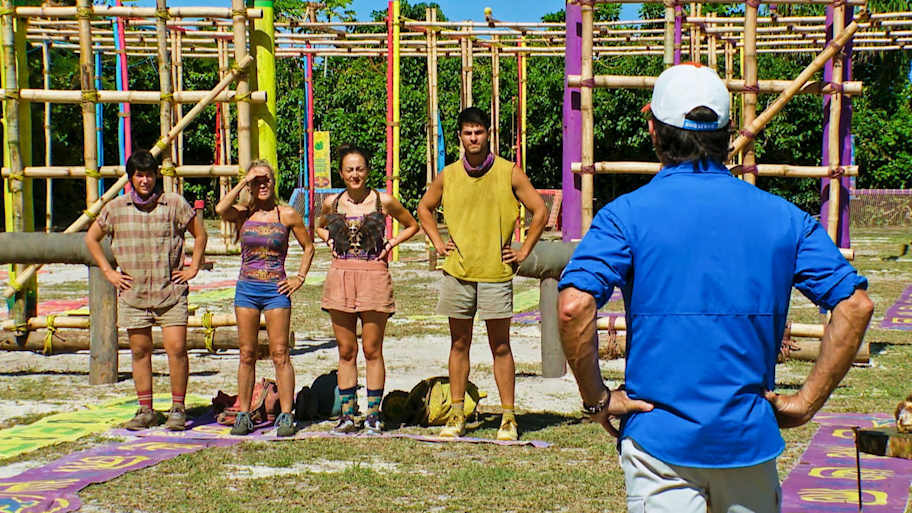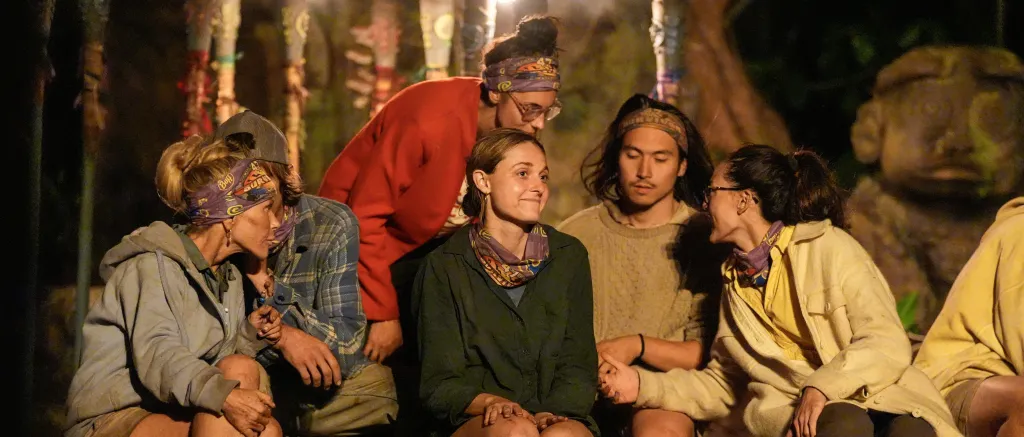As the sun sets on another thrilling season of Survivor, fans eagerly anticipate the culmination of weeks of strategy, alliances, and blindsides. Survivor 47 has been a rollercoaster of emotions, showcasing a diverse cast of characters, each bringing their unique gameplay to the fore. With the finale upon us, it’s time to delve deep into each contestant’s journey, analyzing their strengths, weaknesses, and the indelible marks they’ve left on the game.
Introduction to Survivor 47
Survivor 47 transported 18 castaways to the picturesque Mamanuca Islands in Fiji, challenging them to outwit, outplay, and outlast each other over 26 grueling days. Divided into three tribes—Gata, Lavo, and Tuku—the contestants faced a series of physical and mental challenges, all while navigating the intricate web of social politics inherent to the game. The season was marked by unexpected alliances, strategic masterstrokes, and moments of profound human connection.Wikipedia
The Early Boots: Players Who Left Too Soon
Terran “TK” Foster – Tuku Tribe
Terran “TK” Foster’s journey was short-lived, with his dominant demeanor causing friction within the Tuku tribe. A pivotal moment came when his confrontational approach during a challenge alienated key tribemates, leading to his early exit. This underscores the importance of adaptability and social awareness in the game.
Jon Lovett – Gata Tribe
Jon Lovett’s downfall was precipitated by early-game dynamics and mistrust sown by fellow contestant Andy Rueda. Despite efforts to redirect the target onto others, Jon couldn’t recover from the initial setback, highlighting the precarious nature of first impressions in Survivor.
Aysha Welch – Lavo Tribe
Aysha Welch entered the game with high expectations, given her deep understanding of Survivor mechanics. However, her rigid gameplay and reluctance to adapt led to her premature departure. Her story serves as a cautionary tale about the perils of inflexibility in a constantly evolving game.
Rome Cooney – Lavo Tribe
Rome Cooney’s aggressive gameplay and overconfidence became his Achilles’ heel. While he showcased strategic prowess, his inability to foster genuine relationships and his confrontational style led to his downfall. His journey emphasizes the delicate balance between strategy and social bonds.
Mid-Game Players: The Heart of the Season
Anika Dhar – Gata Tribe
Anika Dhar’s natural leadership qualities, while commendable, became a double-edged sword. Her assertiveness was perceived as domineering, causing rifts within her tribe and leading to her elimination. Her experience highlights the nuanced art of leadership in a group setting.
Kishan Patel – Lavo Tribe
Kishan Patel demonstrated potential as a strategic thinker and social player. However, his game was cut short by a well-executed blindside orchestrated by Genevieve Mushaluk. Kishan’s exit underscores the ever-present threat of betrayal in Survivor.
Tiyana Hallums – Tuku Tribe
Tiyana Hallums was a proactive player, forming alliances and strategizing diligently. Despite her efforts, she struggled to find solid footing within her tribe, leading to her elimination. Her journey reflects the challenges of building trust and securing loyalty.
Sol Yi – Lavo Tribe
Sol Yi faced continuous targeting, particularly from Rome Cooney. Despite this, he managed to navigate the early stages through alliances. However, a lack of strong advocates ultimately led to his exit, highlighting the importance of having unwavering allies.
Photo Credit: Robert Voets/CBS via Getty Images
The Jury Members: Influencers of the Final Outcome
Gabe Ortis – Tuku Tribe
Gabe Ortis’s strong social game and alliances provided him with a safety net. However, his perceived threat level became too significant, leading to his elimination. His journey illustrates the fine line between being a valuable ally and a formidable adversary.
Sierra Wright – Gata Tribe
Sierra Wright’s alliance with Sam Phalen dominated the Gata tribe’s early game. Post-merge, their duo was seen as a significant threat, resulting in Sierra’s blindside. Her experience underscores the shifting dynamics and perceptions post-merge.
Caroline Vidmar – Tuku Tribe
Caroline Vidmar’s evolution from a background player to a strategic force was notable. Her decision to vote out close ally Gabe showcased her growing agency. However, her earlier passivity may have limited her longevity in the game.
Kyle Ostwald – Tuku Tribe
Kyle Ostwald emerged as a challenge powerhouse, securing multiple immunity wins. His physical prowess, while impressive, painted a target on his back, leading to his eventual ousting. His story highlights the double-edged nature of challenge dominance.
Andy Rueda – Gata Tribe
Andy Rueda’s unpredictable gameplay kept both allies and adversaries on their toes. His willingness to flip alliances and embrace chaos defined his journey. While this strategy carried him deep into the game, it also sowed seeds of mistrust, culminating in his elimination.
The Finalists: Contenders for the Sole Survivor Title
Teeny Chirichillo – Lavo Tribe
Teeny Chirichillo’s game was characterized by emotional intelligence and strong social bonds. While not the most overtly strategic player, her likability and genuine connections carried her to the finale. Her journey underscores the power of social capital in Survivor.
Genevieve Mushaluk – Lavo Tribe
Genevieve Mushaluk was the strategic linchpin of the season, orchestrating multiple blindsides and navigating the complex web of alliances with finesse. Her calculated moves and adaptability positioned her as a formidable contender for the title of
- Man City drop Jack Grealish transfer hint as they launch stunning new kit for Club World Cup - June 5, 2025
- Madison Beer Shares Cheeky Bath Photo in Oscars Party Post - June 5, 2025
- Willow Name Meaning - June 5, 2025






